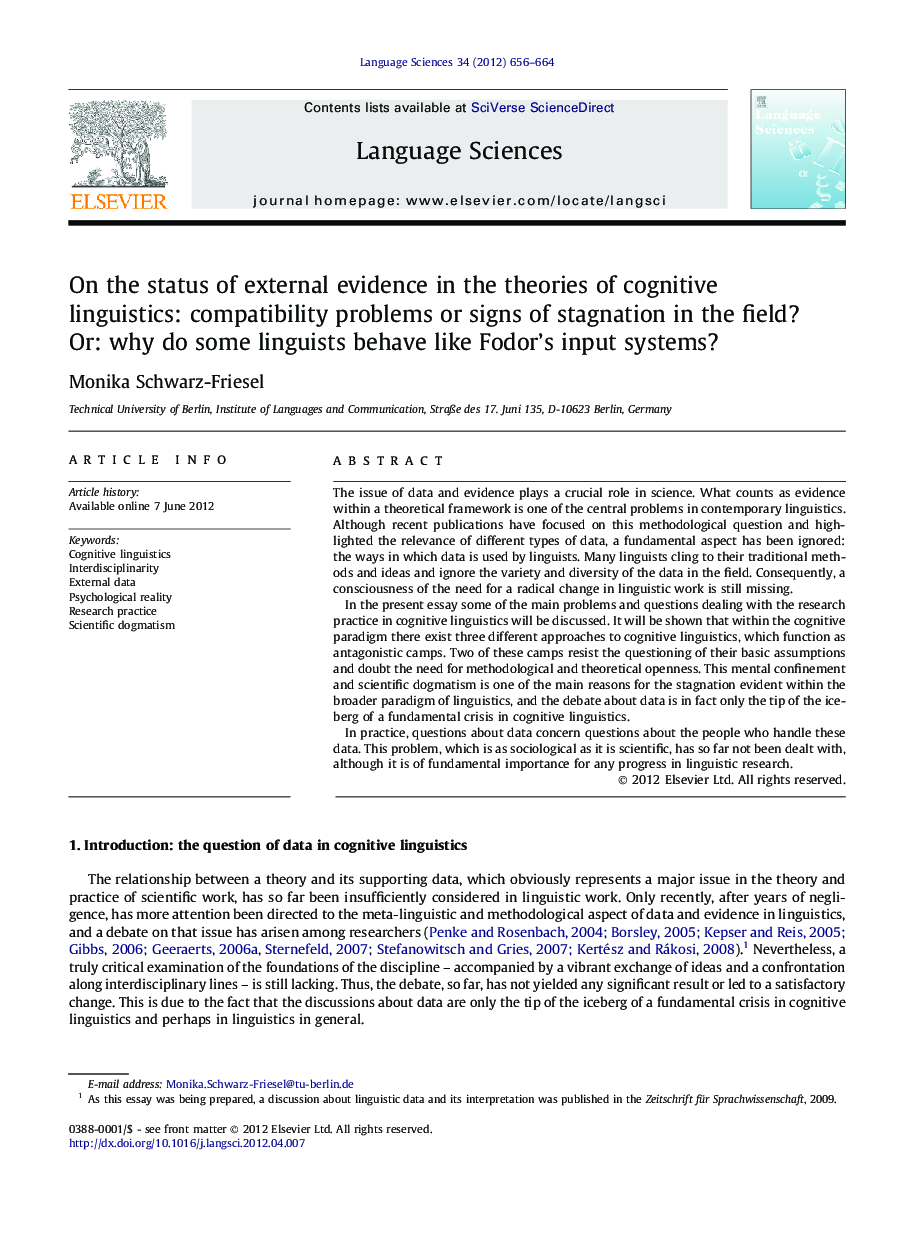| Article ID | Journal | Published Year | Pages | File Type |
|---|---|---|---|---|
| 1103136 | Language Sciences | 2012 | 9 Pages |
The issue of data and evidence plays a crucial role in science. What counts as evidence within a theoretical framework is one of the central problems in contemporary linguistics. Although recent publications have focused on this methodological question and highlighted the relevance of different types of data, a fundamental aspect has been ignored: the ways in which data is used by linguists. Many linguists cling to their traditional methods and ideas and ignore the variety and diversity of the data in the field. Consequently, a consciousness of the need for a radical change in linguistic work is still missing.In the present essay some of the main problems and questions dealing with the research practice in cognitive linguistics will be discussed. It will be shown that within the cognitive paradigm there exist three different approaches to cognitive linguistics, which function as antagonistic camps. Two of these camps resist the questioning of their basic assumptions and doubt the need for methodological and theoretical openness. This mental confinement and scientific dogmatism is one of the main reasons for the stagnation evident within the broader paradigm of linguistics, and the debate about data is in fact only the tip of the iceberg of a fundamental crisis in cognitive linguistics.In practice, questions about data concern questions about the people who handle these data. This problem, which is as sociological as it is scientific, has so far not been dealt with, although it is of fundamental importance for any progress in linguistic research.
► Many cognitive linguists ignore the variety and diversity of the data in the field. ► The debate about data is the tip of the iceberg of a crisis in cognitive linguistics. ► Questions about data concern questions about the people who handle these data.
